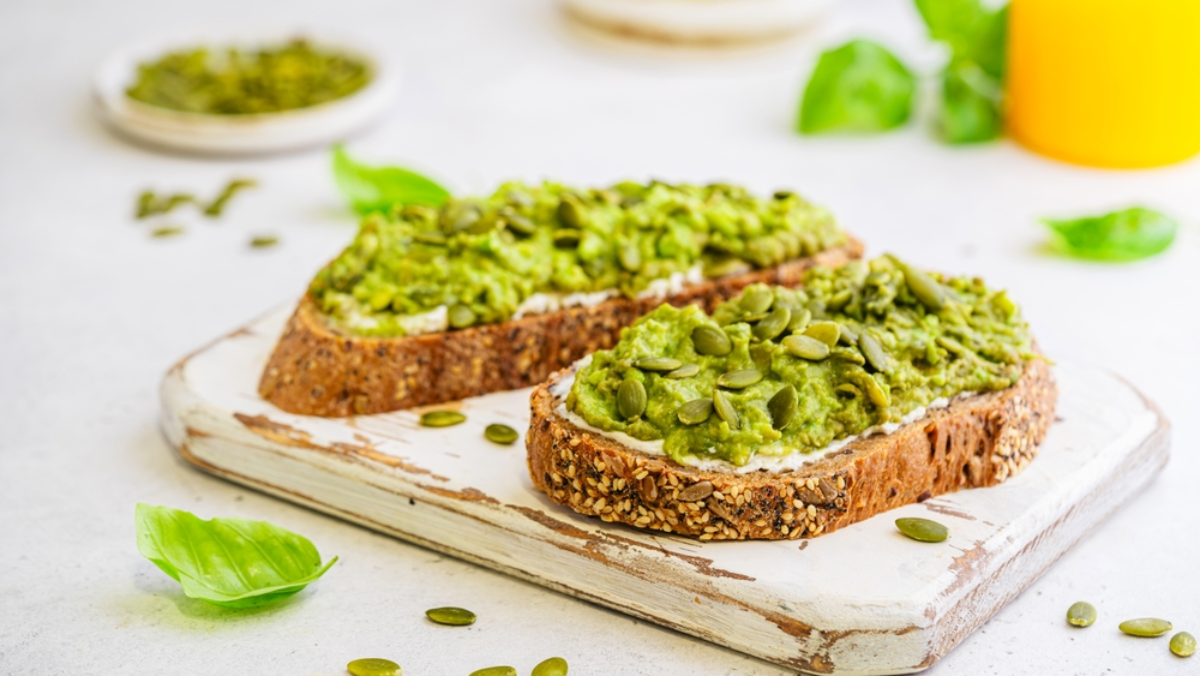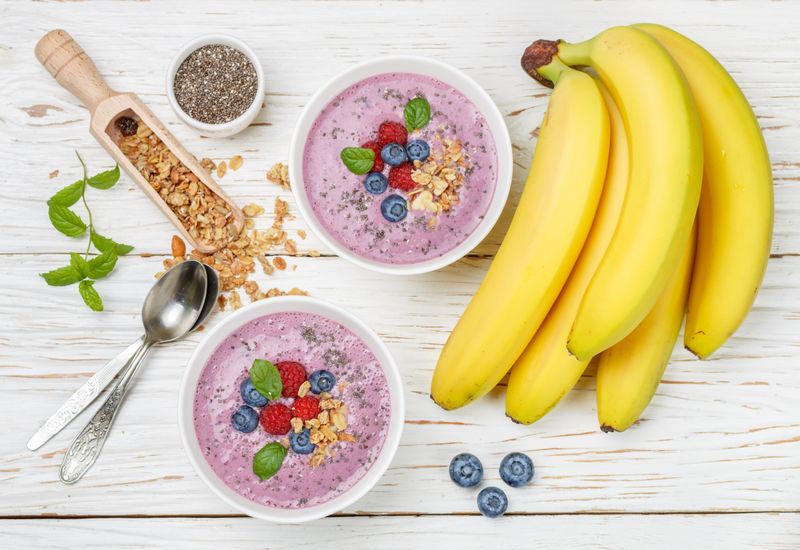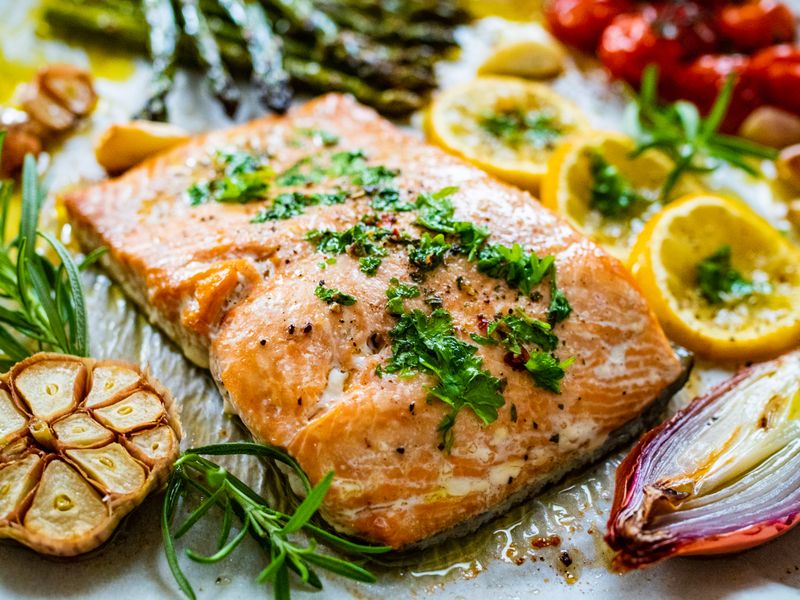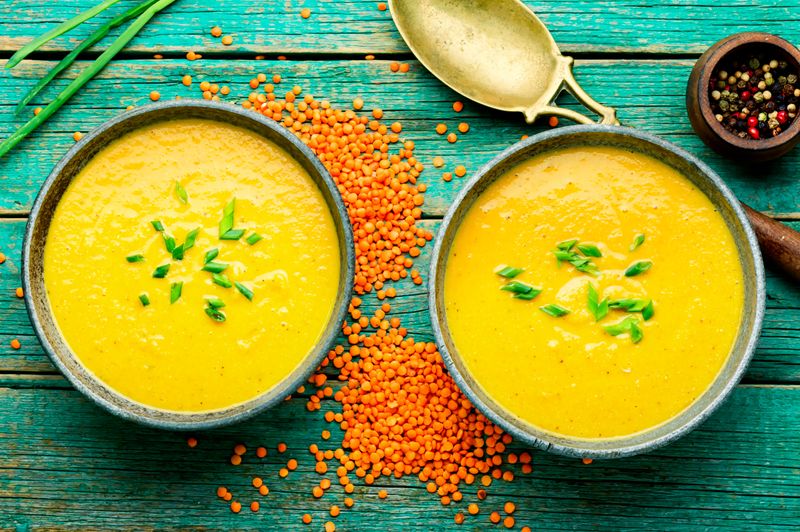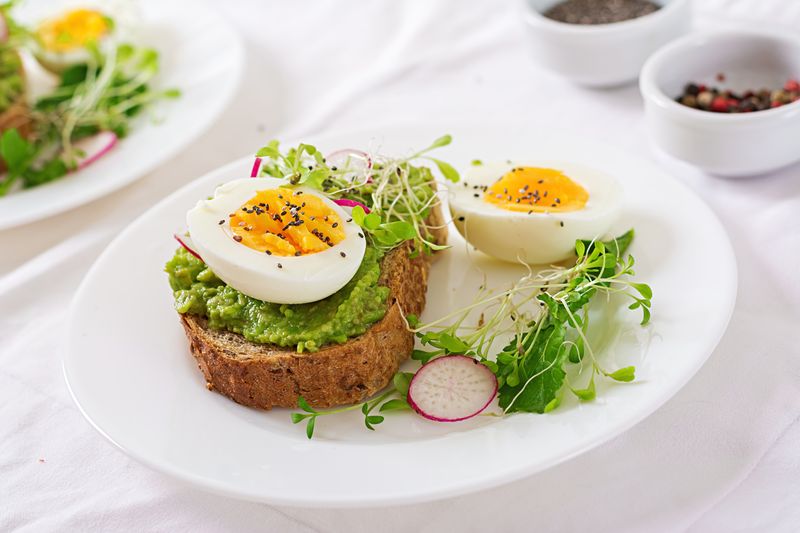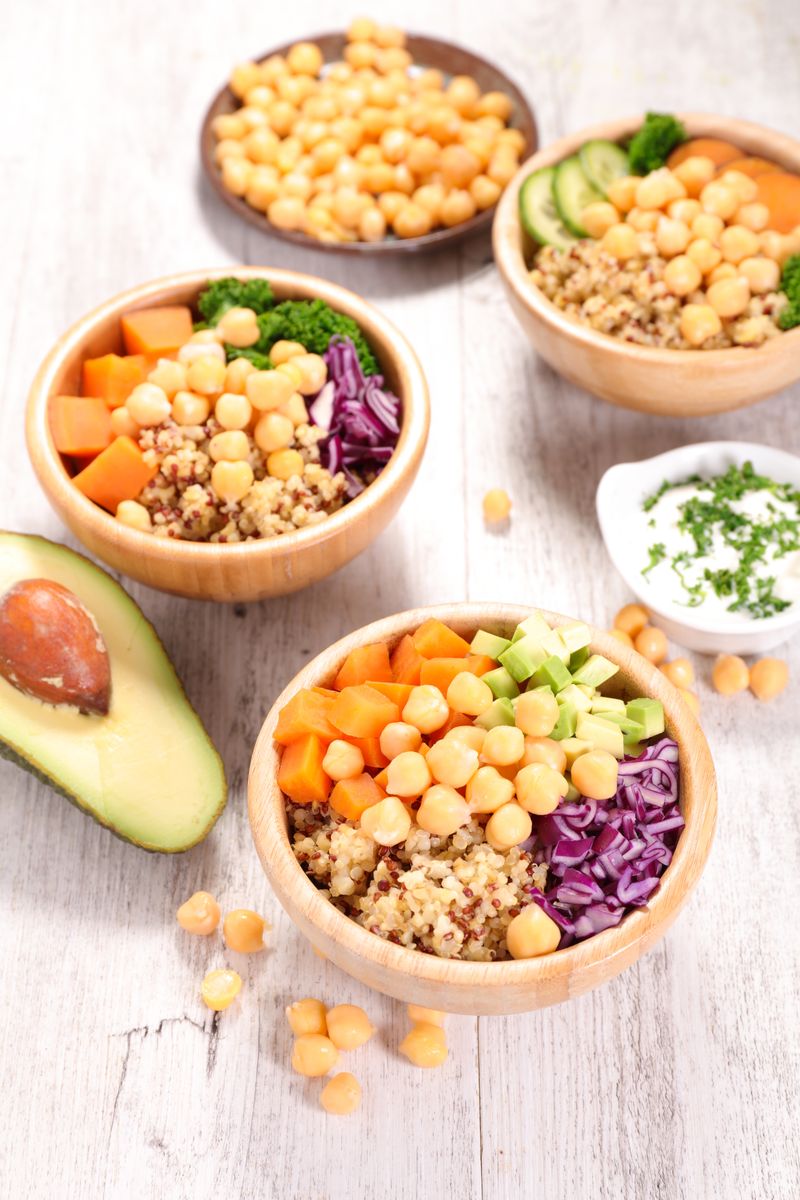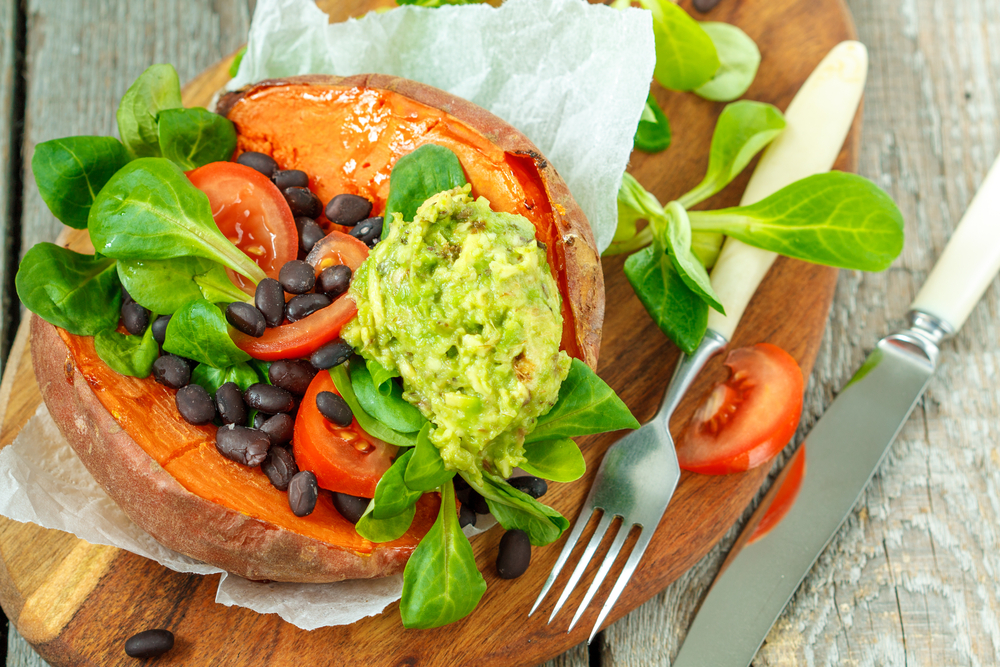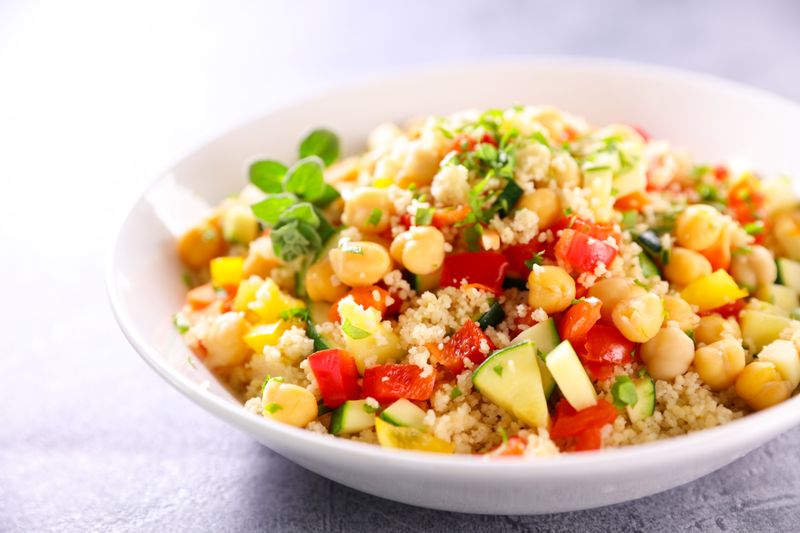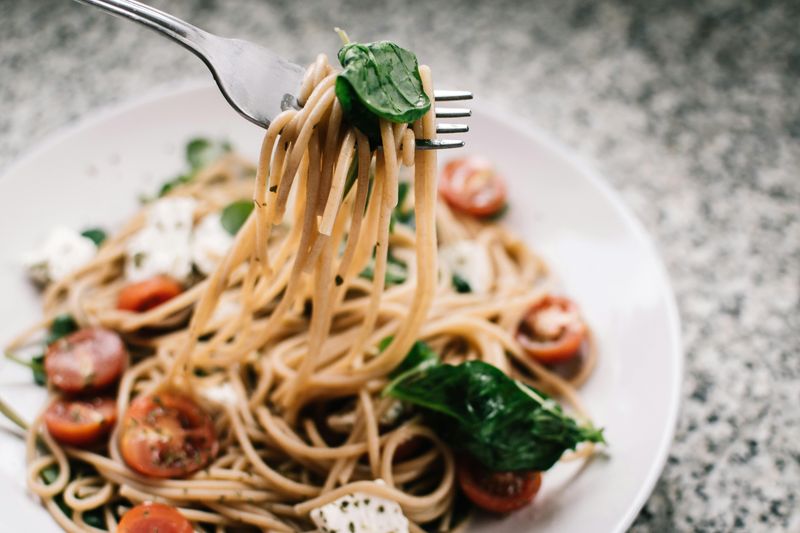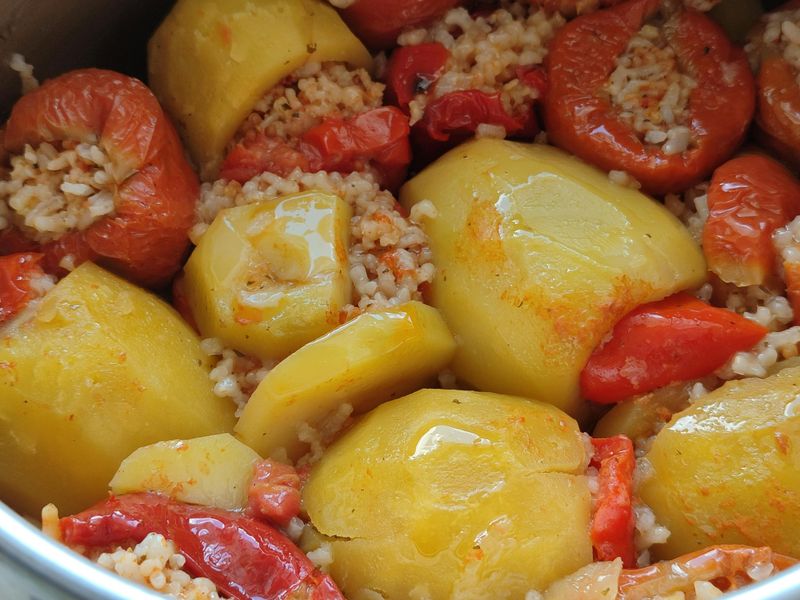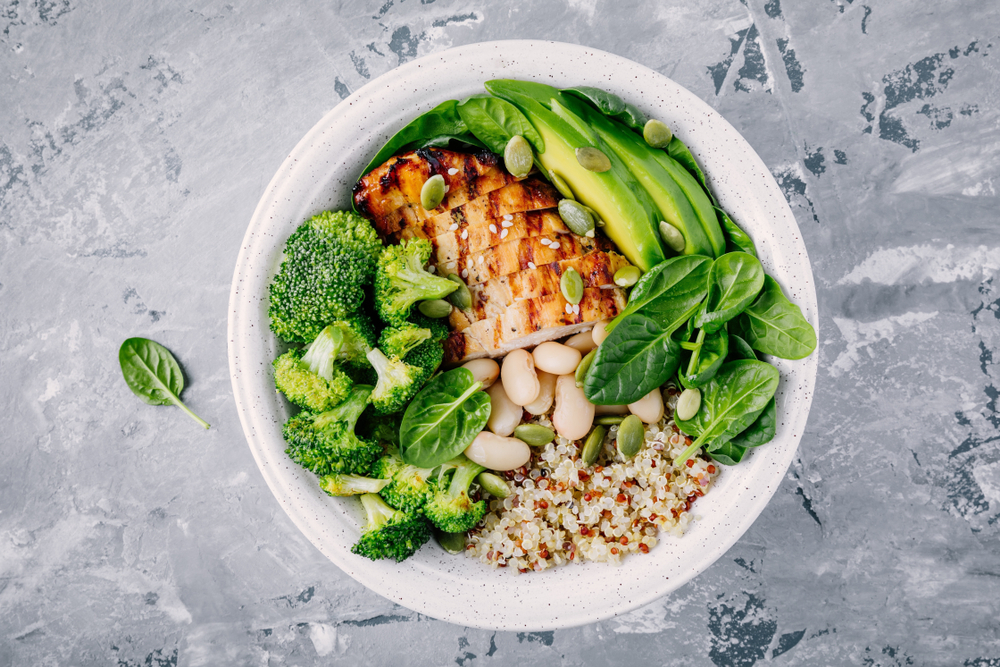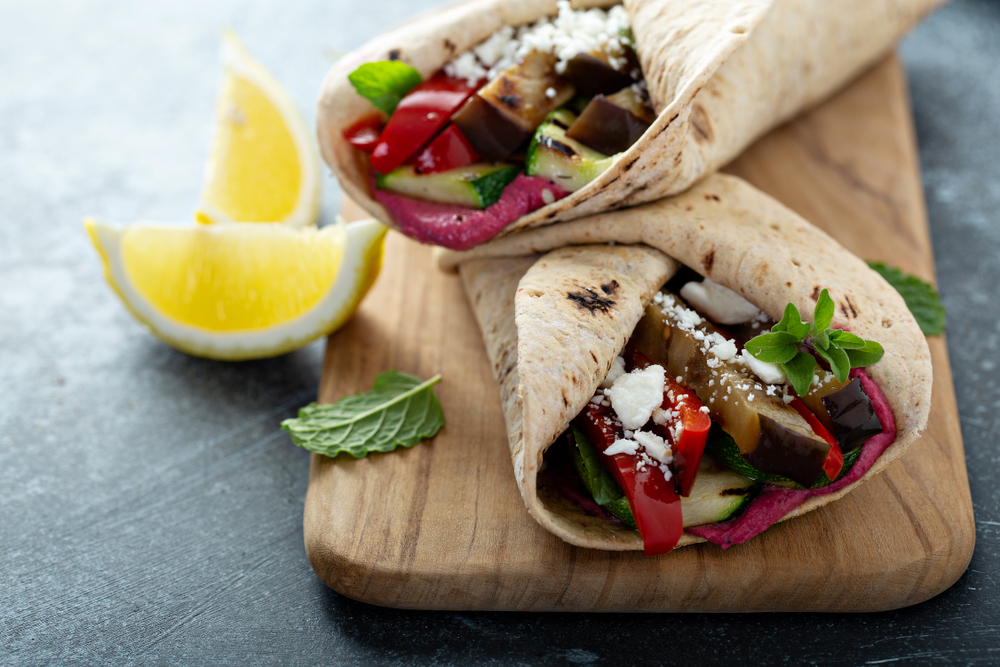Looking after your heart doesn’t mean eating bland, boring food. With the right ingredients and simple cooking methods, you can enjoy delicious meals that help lower cholesterol and strengthen your heart. These 13 recipes combine heart-healthy ingredients like fiber-rich grains, omega-3 fatty acids, and antioxidant-packed vegetables to create meals that taste good and do good for your body.
1. Oatmeal with Berries & Chia Seeds
Start your morning with a cholesterol-fighting powerhouse. Oatmeal contains soluble fiber that actually helps remove LDL (bad) cholesterol from your bloodstream. The addition of colorful berries brings natural sweetness and heart-protecting antioxidants.
Adding a sprinkle of chia seeds boosts the omega-3 content, which helps reduce inflammation in blood vessels. For extra flavor without added sugar, try a dash of cinnamon or vanilla.
Make this breakfast even more effective by choosing steel-cut oats instead of instant varieties. They digest more slowly, keeping you full longer and providing more sustained heart benefits throughout your morning.
2. Grilled Salmon with Lemon & Dill
Salmon stands as one of the best heart-protective foods available. Rich in omega-3 fatty acids, it helps reduce inflammation and can actually lower triglycerides in your blood. The bright flavors of lemon and dill complement the fish perfectly without adding unnecessary calories.
Grilling salmon keeps it moist while allowing excess fat to drip away. For best results, leave the skin on while cooking to seal in moisture, then remove before eating if preferred.
Pair this dish with steamed vegetables and a small portion of brown rice for a complete heart-healthy meal.
3. Lentil & Vegetable Soup
Humble lentils pack an impressive nutritional punch for heart health. These tiny powerhouses contain soluble fiber that helps sweep cholesterol from your system. Combined with colorful vegetables, they create a filling soup that satisfies hunger while nurturing your cardiovascular system.
The beauty of this soup lies in its versatility – use whatever vegetables you have on hand. Carrots, celery, onions, and tomatoes form a classic base, but spinach, sweet potatoes, or bell peppers work wonderfully too.
Make a large batch on weekends for quick weekday meals. The flavors actually improve after a day in the refrigerator, and portions can be frozen for up to three months.
4. Avocado Toast on Whole Grain Bread
Sometimes the simplest foods offer the greatest heart benefits. Avocados contain monounsaturated fats that help reduce LDL cholesterol while raising HDL (good) cholesterol levels. When spread on fiber-rich whole grain bread, you get a double dose of heart protection.
Elevate this basic dish with toppings like sliced tomatoes, microgreens, or a sprinkle of everything bagel seasoning. For protein, add a boiled egg or a spoonful of hemp seeds to keep you satisfied longer.
5. Quinoa Salad with Chickpeas & Veggies
Quinoa provides complete protein with all nine essential amino acids – rare for a plant food. When paired with chickpeas, the protein content rivals meat dishes without the saturated fat that can raise cholesterol.
Rainbow vegetables add crucial antioxidants that protect blood vessels from damage. Try bell peppers, cucumber, cherry tomatoes, and red onion for a beautiful color spectrum. A simple dressing of olive oil, lemon juice, and herbs ties everything together.
6. Baked Sweet Potatoes with Black Beans
Loaded with potassium, sweet potatoes help regulate blood pressure naturally. The fiber keeps you full while supporting healthy cholesterol levels.
Black beans complement sweet potatoes perfectly – both nutritionally and flavor-wise. Together, they create a complete protein similar to meat but with plant-based benefits for heart health.
For a quick weeknight meal, microwave the sweet potatoes until tender, then top with warmed black beans seasoned with cumin, lime, and a touch of smoked paprika. Add avocado for healthy fats that help your body absorb the vegetables’ nutrients more effectively.
7. Mediterranean Chickpea Bowl
Mediterranean food consistently ranks among the healthiest cuisines for heart health. This vibrant bowl captures those benefits in one simple meal. Protein-rich chickpeas form the foundation, complemented by olive oil – a source of monounsaturated fats that help lower bad cholesterol.
Fresh vegetables add crunch, flavor, and protective antioxidants. Cucumber, tomato, red onion, and bell peppers work beautifully together. A sprinkle of feta cheese adds tangy flavor while providing calcium (use a light version to keep saturated fat in check).
Make this bowl your own by adding olives, a dollop of hummus, or a drizzle of tahini for extra Mediterranean flair.
8. Whole Wheat Pasta with Spinach & Tomato Sauce
Pasta lovers, rejoice! Switching to whole wheat varieties transforms this comfort food into a heart-healthy option. The additional fiber helps manage cholesterol levels while providing longer-lasting energy than refined pasta.
Lycopene-rich tomato sauce offers powerful antioxidant protection for your heart. Making your own allows you to control sodium levels – simmer tomatoes with garlic, herbs, and a touch of olive oil. Adding leafy spinach boosts nutrients without changing the flavor profile significantly.
Keep portions moderate and balance your plate with extra vegetables or a side salad. For protein without excess saturated fat, add white beans, grilled chicken, or a sprinkle of nutritional yeast instead of heavy cheese.
9. Stuffed Bell Peppers with Brown Rice & Lentils
Colorful bell peppers serve as nature’s perfect serving bowls while providing vitamin C that helps your body produce collagen for strong blood vessels. When stuffed with brown rice and lentils, they become a complete meal supporting heart health.
Brown rice offers more fiber than white varieties, helping to flush excess cholesterol from your system. Lentils add plant protein and additional fiber, creating a satisfying meal without meat. Aromatic spices like cumin, coriander, and a touch of smoked paprika build flavor without excess salt.
10. Grilled Chicken with Steamed Broccoli & Quinoa
Sometimes simplicity delivers the best heart health results. Lean chicken breast provides satisfying protein without the saturated fat found in darker meat or skin. Removing visible fat before cooking further reduces cholesterol impact.
Broccoli belongs to the cruciferous vegetable family, known for compounds that may help prevent heart disease. Light steaming preserves nutrients better than boiling. Quinoa rounds out the meal with complete protein and fiber that helps manage cholesterol.
11. Roasted Veggie & Hummus Wrap
Roasting vegetables concentrates their flavors while caramelizing natural sugars – no need for heavy sauces or dressings. Zucchini, bell peppers, onions, and eggplant work particularly well.
Hummus provides protein and heart-healthy fats from olive oil and tahini. The fiber from chickpeas helps manage cholesterol levels naturally. Choose whole-grain wraps for additional fiber benefits; look for varieties with visible grains and few additives.
Assemble these wraps just before eating to prevent sogginess, or try rolling the ingredients in sturdy collard green leaves instead of bread for an extra vegetable boost. A squeeze of lemon brightens all the flavors while adding vitamin C.
12. Berry & Greek Yogurt Parfait
Satisfy your sweet tooth while supporting heart health with this simple parfait. Berries rank among the highest antioxidant foods available, helping reduce inflammation that contributes to heart disease. Their natural sweetness means no added sugar is necessary.
Greek yogurt provides protein and calcium with less lactose than regular varieties. Choose plain, unsweetened versions and add your own flavor with vanilla extract or a touch of honey. The probiotics in yogurt may help manage cholesterol levels when consumed regularly.
13. Walnut & Spinach Pesto Pasta
Traditional pesto gets a heart-healthy makeover in this clever recipe. Walnuts replace pine nuts, bringing essential omega-3 fatty acids that help reduce inflammation and improve cholesterol ratios. Their slightly bitter edge pairs beautifully with the garlic and cheese.
Spinach intensifies the green color while adding iron, folate, and antioxidants that support cardiovascular health. Using less Parmesan than traditional recipes cuts saturated fat without sacrificing flavor. A good-quality extra virgin olive oil provides monounsaturated fats that benefit heart health.
